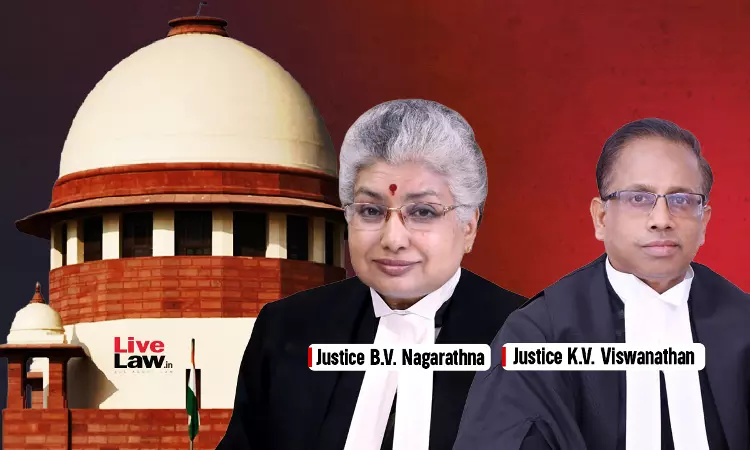- Home
- /
- Supreme court
- /
- Complaint Can Be Amended At...
Complaint Can Be Amended At Post-Cognizance Stage If No Prejudice Is Caused To Accused : Supreme Court
Yash Mittal
26 July 2025 12:39 PM IST
The Supreme Court on Friday (July 25) ruled that an amendment to a complaint can be made at the post-cognizance stage, provided that no 'prejudice' is caused to the accused and the complainant's cross-examination is awaited. The bench comprising Justices BV Nagarathna and KV Viswanathan allowed the complainant's request to amend the complaint under Section 138 of the Negotiable Instruments...
The Supreme Court on Friday (July 25) ruled that an amendment to a complaint can be made at the post-cognizance stage, provided that no 'prejudice' is caused to the accused and the complainant's cross-examination is awaited.
The bench comprising Justices BV Nagarathna and KV Viswanathan allowed the complainant's request to amend the complaint under Section 138 of the Negotiable Instruments Act, 1881, noting that no cross-examination had been concluded and the correction changing “Desi Ghee (milk products)” to “milk” was a typographical error appearing in both the legal notice and the complaint, which did not prejudice the accused.
“We have carefully perused the complaint and the application for amendment. The amendment was moved at a stage when after summons being issued to the respondents, the chief examination of the complainant had concluded and when cross-examination was awaited. The amendment made is also only with regard to the products supplied. According to the complainant, while what was supplied was “milk”, by an inadvertent error “Desi Ghee (milk products)” was mentioned. The error which occurred in the legal notice was carried in the complaint also.”, the court said.
“we find that absolutely no prejudice would be caused to the accused/respondents. The actual facts will have to be thrashed out at the trial. As to what impact the amendment will have on the existence of debt or other liability is for the Trial Court to decide based on the evidence. It was a curable irregularity which the Trial Court rightly addressed by allowing the amendment. It could not be said that by allowing the amendment at a stage when the evidence of the complainant was incomplete, failure of justice would occasion.”, the court added.
Taking guidance from R. Sukumar v. S. Sunaad Raghuram (2015) 9 SCC 609 and Sections 216 and 217 CrPC, the judgment authored by Justice Viswanathan stated that the concept of alter/amendment is not alien to the law, and amendments are not barred post-cognizance if they don't change the complaint's nature or cause prejudice to the accused.
Resultantly, the appeal was allowed, and the impugned order was set-aside.
Cause Title: Bansal Milk Chilling Centre VERSUS Rana Milk Food Private Ltd. & Anr.
Citation : 2025 LiveLaw (SC) 743
Click here to read/download the judgment
Appearance:
For Petitioner(s) : Mr. Chritarth Palli , AOR
For Respondent(s) : Mr. Aabhas Kshetarpal, AOR Mr. Dhiliban Varadarajan, Adv. Mr. Harsh N Dudhe, Adv.



